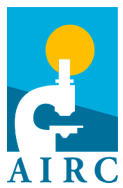Meetings and Seminars
This page lists scientific events, in Italy or abroad, potentially interesting for cancer researchers.
AIRC organizes some webinars directly: the AIRC Lectures, highlighted below by the AIRC logo. AIRC may also support external scientific meetings, as described in the policy.
01
Jan
28
Feb
2026
06
Feb
2026
Webinar dedicated to the 5 per Mille Call
A webinar dedicated is scheduled on
February 6 at 10.00 .
February 6 at 10.00 .
12
Feb
2026
Webinar dedicated to the Individual grants
A webinar dedicated to the Individual grants is scheduled on
February 12 at 11.00 .
February 12 at 11.00 .
12 - 13
Mar
2026
MMBRIDGE
Bridging Science and Care in Multiple Myeloma Current Practice and Emerging Advances
Hotel Duo Milan - Via Gerolamo Cardano, 1 Milano
Segreteria Organizzativa Mattioli 1885
43036 Fidenza (PR)
TEL. 0524 530383 - FAX 0524 82537
MAIL: ecm@mattioli1885.com | www.mattioli1885.com
Hotel Duo Milan - Via Gerolamo Cardano, 1 Milano
Segreteria Organizzativa Mattioli 1885
43036 Fidenza (PR)
TEL. 0524 530383 - FAX 0524 82537
MAIL: ecm@mattioli1885.com | www.mattioli1885.com

 AIRC lectures series
AIRC lectures series